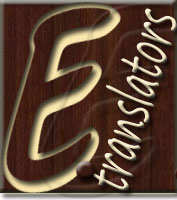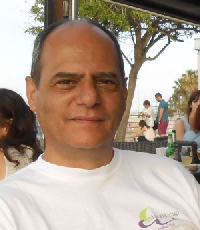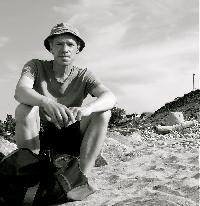Off topic: For how long can an individual remain sleepless at a stretch? Thread poster: Erudites
|
|---|
Erudites 
Local time: 04:53
Danish to English
+ ...
Given our lifestyle and commitments, most of us find it normal to cut down an hour or two from our regular sleep duration. But while we do put ourselves at health risks by doing so, can one skip sleep altogether and still survive? For how long can an individual remain sleepless at a stretch?
<... See more Given our lifestyle and commitments, most of us find it normal to cut down an hour or two from our regular sleep duration. But while we do put ourselves at health risks by doing so, can one skip sleep altogether and still survive? For how long can an individual remain sleepless at a stretch?
http://letstip.com/blog/what-is-the-maximum-number-of-days-you-can-go-without-sleeping ▲ Collapse
| | | |
Three days (two and a half nights) without a minute of sleep. I was at university, had to deliver a lab report and had just recovered from an infection that caused me to lose most of the time allowed. During the third night I fell asleep while writing (handwriting, I did not have a computer) and woke up some time later to find out that I had filled two A4 pages with a readable though nonsensical description of my dream. I went to sleep. I missed the deadline. I had to repeat the whole course.
| | | | | Military trials | Dec 17, 2012 |
Staying awake for extended periods of time is of course valuable for the military.
I read somewhere a long time ago that beyond 36 hours without sleep, soldiers' judgement was impaired, they made mistakes understanding maps and made decisions that they wouldn't have made in normal conditions. The bottom line was that after 1,5 day without sleep, you weren't worth much.
However, sleep time split in 15-30 min naps was much more efficient that a single stretch and soldiers could ... See more Staying awake for extended periods of time is of course valuable for the military.
I read somewhere a long time ago that beyond 36 hours without sleep, soldiers' judgement was impaired, they made mistakes understanding maps and made decisions that they wouldn't have made in normal conditions. The bottom line was that after 1,5 day without sleep, you weren't worth much.
However, sleep time split in 15-30 min naps was much more efficient that a single stretch and soldiers could "last longer" if they had 6 naps of 15 minutes instead of 1h30 of sleep in one go.
Of course, most of us have already been over 36 hours without sleep and we can probably fake a normal behaviour, but it seems that we lose a lot of intellectual abilities.
Also, sleep can take various forms: an experiment with a car driver whose brain was monitored showed that on a 1000 km journey with routine breaks every 3 hours, he had something like 15 micro-sleeps while driving, from a fraction of a second to several seconds!
When I was young, I once stayed 38 hours awake (doing silly things) and on another occasion, I slept 26h30min in a row (after doing other silly things).
Philippe ▲ Collapse
| | | | gianfranco 
Brazil
Local time: 20:23
Member (2001)
English to Italian
+ ...
| Once I worked for 60 hours! I wouldn't repeat it... | Dec 17, 2012 |
In my previous life, not as a translator, I was a bit of a workaholic, due to too many commitments and too many projects and clients. I was trying to get off the ground a small software company, and often I had to work overnight to complete a program.
Often I worked two days and programmed the whole night (only 1 night!!!!), but I was younger and felt no consequences.
Once I had to deliver something and, feeling strong, decided to work for a second consecutive night, which me... See more In my previous life, not as a translator, I was a bit of a workaholic, due to too many commitments and too many projects and clients. I was trying to get off the ground a small software company, and often I had to work overnight to complete a program.
Often I worked two days and programmed the whole night (only 1 night!!!!), but I was younger and felt no consequences.
Once I had to deliver something and, feeling strong, decided to work for a second consecutive night, which meant a whopping 60 hrs (3 days and 2 nights) of continuous concentration and hard work.
I barely survived, and the third day I was mentally wrecked and had to control myself for not snapping for trivial reasons in front of friends, or colleagues or clients. I even heard non existing noise, whistles and bells. Quite funny, really, but not very healthy.
Anyway, it was interesting, for me, as an experiment on my capabilities, but in the end it was painful and even dangerous because for various reasons I had to drive a lot during the 3 days.
The programming job was completed and it worked, but I felt unsafe when driving to the client premises to install it, as my reflexes were slow, too slow for driving safely. It was as if I were drunk.
Now, as I work from home, if I need to work long hours I never go completely without sleep but take the time to insert at least 1-2 breaks for resting. My ideal break is 2 hrs, and a deep sleep of 1.5 hrs, followed by a shower, is often sufficient to continue working for 4-5 hrs more, if needed.
Many times, I could go on all night inserting a longer break, sleeping 3-4 hrs and then, the usual waking shower. This way I get almost 80% of the rest obtainable in a full night, but actually sleep only 50% of the normal time. I save 3 hrs, and often it is crucial to keep a deadline.
It cannot be repeated, and I make sure this effort is followed by a proper night of rest. ▲ Collapse
| | |
|
|
|
Gyula Erdesz
Hungary
Local time: 01:23
Member (2009)
English to Hungarian
+ ...
| The key is programmed sleeping | Dec 17, 2012 |
gianfranco wrote:
Now, as I work from home, if I need to work long hours I never go completely without sleep but take the time to insert at least 1-2 breaks for resting. My ideal break is 2 hrs, and a deep sleep of 1.5 hrs, followed by a shower, is often sufficient to continue working for 4-5 hrs more, if needed.
Based on my second-hand experience in multiday athletics as a race organizer, I can only agree with Gianfanco's suggestion. You can survive several days with programmed sleep. There is simply no sense to extend your working period beyond 24-36 hours as your mental/physical performance decreases to an unacceptable level.
It was amazing to see Tiziano MArchesi during 2011 Balatonfüred 6 day and 48 hour race ( http://www.unixsport.hu/hatnaposfutoverseny ). As a professional ultramarathon runner, he slept exactly 7 x 7 minutes during the 48 hour race and covered 413 km, a new age group world record. According to him, this technique cheats the brain. When you fall asleep, hormones are released immediately and when you wake up after 10 minutes, you feel fit (or rather fitter than you were). On the other hand, if you sleep 20-120 minutes, totally different processes take place in your body and you will feel beaten.
So, up to 15 minutes for emergency situations (e.g. during a long drive on the motorway) or more than 120 minutes for multiday activities.
Regards,
Gyula
| | | | | I have never tried, | Dec 17, 2012 |
because I do not intend to ruin my health.
Gudrun
| | | | Erudites 
Local time: 04:53
Danish to English
+ ...
TOPIC STARTER | @gyula - For polyphasic sleeping pattern, hereis another piece, whichi read there.. | Dec 17, 2012 |
The idea of having more time at disposal everyday by shifting from the normal monophasic to the controversial polyphasic sleep pattern may appear appealing at prima facie. But is this sleep schedule devoid of any potential health risks?
http://letstip.com/blog/what-are-the-health-risks-of-a-polyphasic-sleep-pattern
| | | | Gyula Erdesz
Hungary
Local time: 01:23
Member (2009)
English to Hungarian
+ ...
| Polyphasic sleep vs. programmed sleep | Dec 17, 2012 |
@Erudites
I don't believe that several days with extreme low amount of (programmed) sleep can have any direct health risks. The human body can adapt to the new situation and makes up the missed sleeping hours afterwards.
In my opinion, polyphasic sleep is another cattle of fish as it is a continuous state (lifestyle) and not a short-run emergency solution for your time pressure.
Cheers,
Gyula
| | |
|
|
|
| Not worth trying | Dec 17, 2012 |
I am very interested on the topic of sleeping since I am a heavy sleeper.
I would sleep 10 hours a days if I could, and I find it harder and harder to get up before 8 AM. I tend to lay in bed for 30 mins before getting up, something I did not used to do in my early 20's. And I don't feel at 100% until the 2nd coffee and anyway after lunch.
I'd go to sleep at 2 AM in the morning, if it was just upon me.
I struggle to keep my awaken time on the daylight hours and I wonder... See more I am very interested on the topic of sleeping since I am a heavy sleeper.
I would sleep 10 hours a days if I could, and I find it harder and harder to get up before 8 AM. I tend to lay in bed for 30 mins before getting up, something I did not used to do in my early 20's. And I don't feel at 100% until the 2nd coffee and anyway after lunch.
I'd go to sleep at 2 AM in the morning, if it was just upon me.
I struggle to keep my awaken time on the daylight hours and I wonder if I should simply stop fightin' it, or if this is just the result of wrong behaviours and external factors.
Needless to say, the longer I stayed awake was 27 hours and I was wrecked. I felt very cold and very old, moved slowly, and kept my speaching down to a minimum, my heartbeat rate increased in a odd way for the smallest physical effort. I was getting lethargic and I felt my body was struggling - I was especially worried for my heart.
I found out that my intellectual performance is very high but for a limited time span, so for me it's pretty useless to stay awake for long hours or to drink too much coffee if I have to do an intellectual activity such as studying, translating or writing.
I am also pissed that my performance is not consistent throughout the days and week. Sometimes I take on jobs based on my usual performance (words/day) and then I don't have the focus to translate. I sit in front of the computer for hours, with minimal output. Other times I sit there and translate for hours with an excellent output! ▲ Collapse
| | | | Allison Wright (X) 
Portugal
Local time: 00:23
| Lots of variables | Dec 17, 2012 |
Age, and your general state of health to begin with, are two variables which come into play. The type of activity you do when remaining awake is another, but we will assume we only stay awake for the purposes of completing a translation.
In my youth (before 40!) I would from time to time do a 36-hour stretch, but be pretty useless at the end of it. Cramps in my leg muscles, general muscular aches and "the shakes" combined with a sense of being hyperactive, and easily distracted afte... See more Age, and your general state of health to begin with, are two variables which come into play. The type of activity you do when remaining awake is another, but we will assume we only stay awake for the purposes of completing a translation.
In my youth (before 40!) I would from time to time do a 36-hour stretch, but be pretty useless at the end of it. Cramps in my leg muscles, general muscular aches and "the shakes" combined with a sense of being hyperactive, and easily distracted after 36 hours of continuous work are what I remember.
I cannot do this now because since the age of 40, I have been wearing glasses. My eyes can no longer take the strain of reading for that period of time. The last time I pushed myself (about 6 months ago), I think the total time spent working at a stretch (with rushed breaks for food and beverages) was 20 hours, but I did feel my thinking processes slow down considerably towards the end of that.
So: Age 20-40: 36 hours (involves working right through the night + 12 hours after that)
Now - Age 48: 20 hours maximum, and feel much worse that I ever used to.
I no longer plan for long stretches, but sometimes it happens. If I find that I have over-committed, then I tend to reduce my sleep from the usual 7 hours or so a night to as little as 3 or 4, but no longer do that two nights in a row. It is not productive, and messes me up physically and mentally! ▲ Collapse
| | | | Tom Skold 
Sweden
Local time: 01:23
English to Swedish
+ ...
| Randy Gardner's record beaten by two hours in 2007 | Dec 17, 2012 |
There was this guy in Cornwall, Tony Wright, who stayed awake for 266 hours in 2007, but it's not an official record, as you can see, because they, Guinness, don't want to endorse this kind of thing. You could follow him live in a pub in Cornwall on the internet, which I did occasionally. Not very exciting though. He did it to prove some weird theory of his that other parts of the brain, probably the right side, would take over and you'd get more... See more There was this guy in Cornwall, Tony Wright, who stayed awake for 266 hours in 2007, but it's not an official record, as you can see, because they, Guinness, don't want to endorse this kind of thing. You could follow him live in a pub in Cornwall on the internet, which I did occasionally. Not very exciting though. He did it to prove some weird theory of his that other parts of the brain, probably the right side, would take over and you'd get more ... well, something.
http://www.dailymail.co.uk/news/article-457403/Cornishman-sleeps-11-days-hes-rude-awakening.html
He had his own website and was writing a book about his brain theory, but I lost touch with it and don't know what happened.
Regards,
Tom ▲ Collapse
| | | | To report site rules violations or get help, contact a site moderator: You can also contact site staff by submitting a support request » For how long can an individual remain sleepless at a stretch? | Trados Business Manager Lite | Create customer quotes and invoices from within Trados Studio
Trados Business Manager Lite helps to simplify and speed up some of the daily tasks, such as invoicing and reporting, associated with running your freelance translation business.
More info » |
| | Anycount & Translation Office 3000 | Translation Office 3000
Translation Office 3000 is an advanced accounting tool for freelance translators and small agencies. TO3000 easily and seamlessly integrates with the business life of professional freelance translators.
More info » |
|
| | | | X Sign in to your ProZ.com account... | | | | | |











